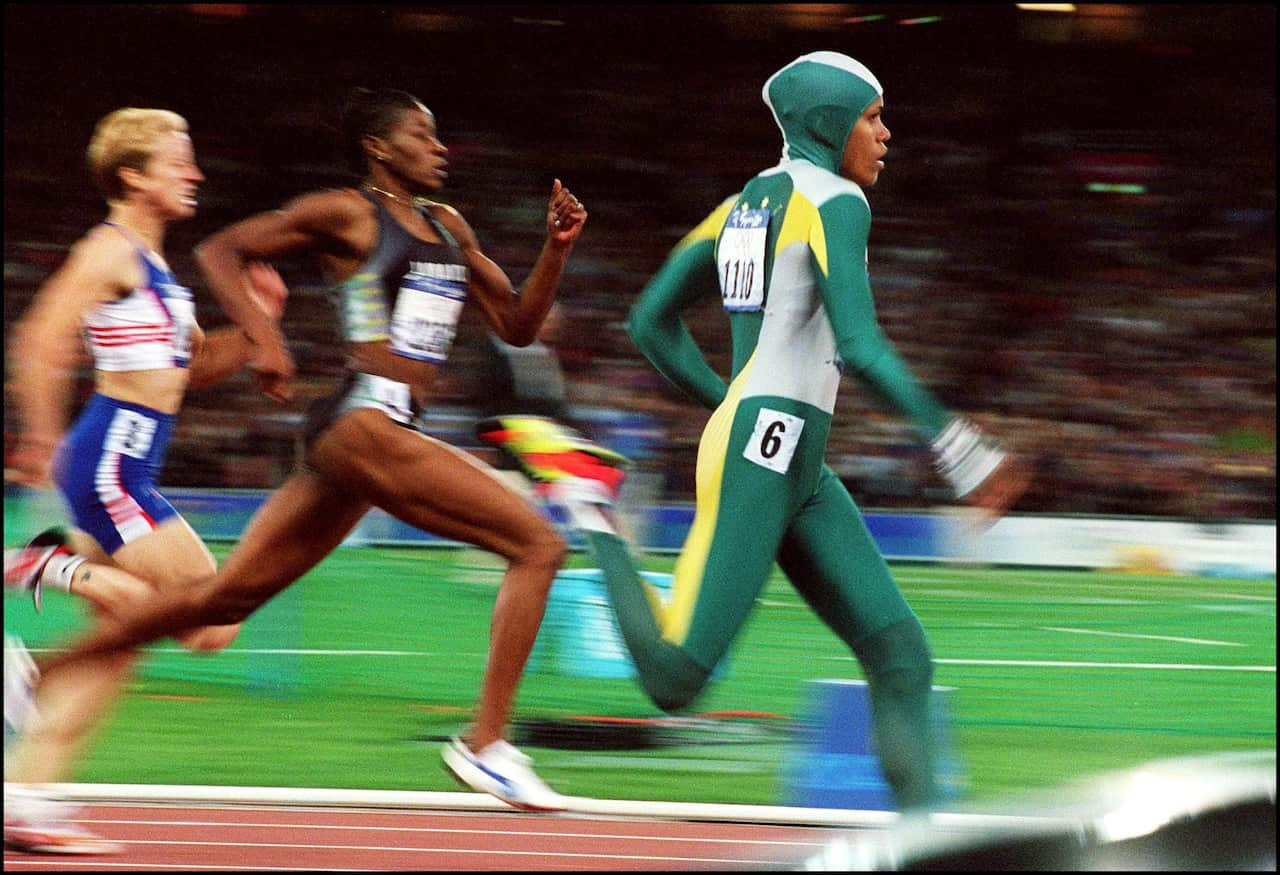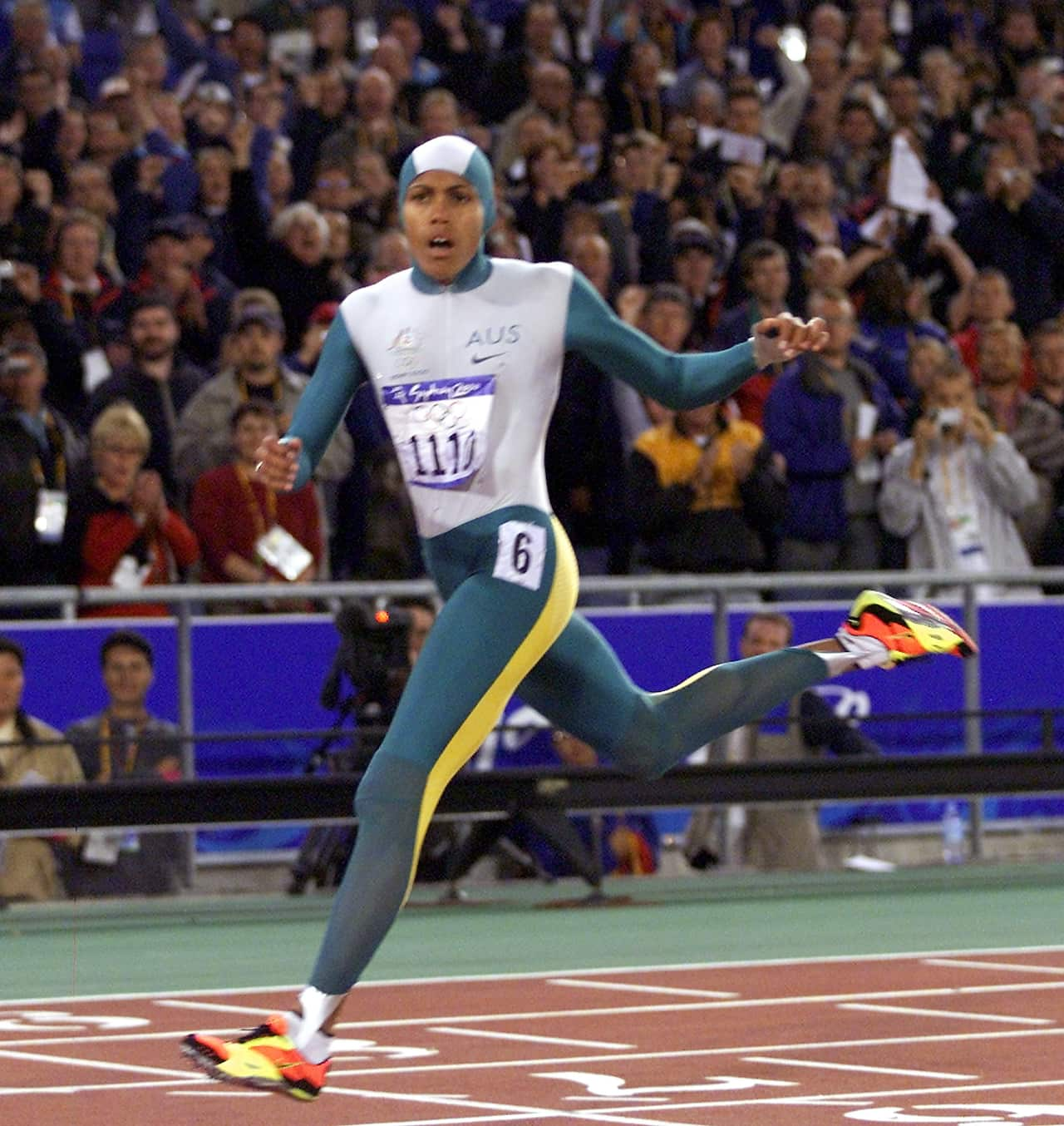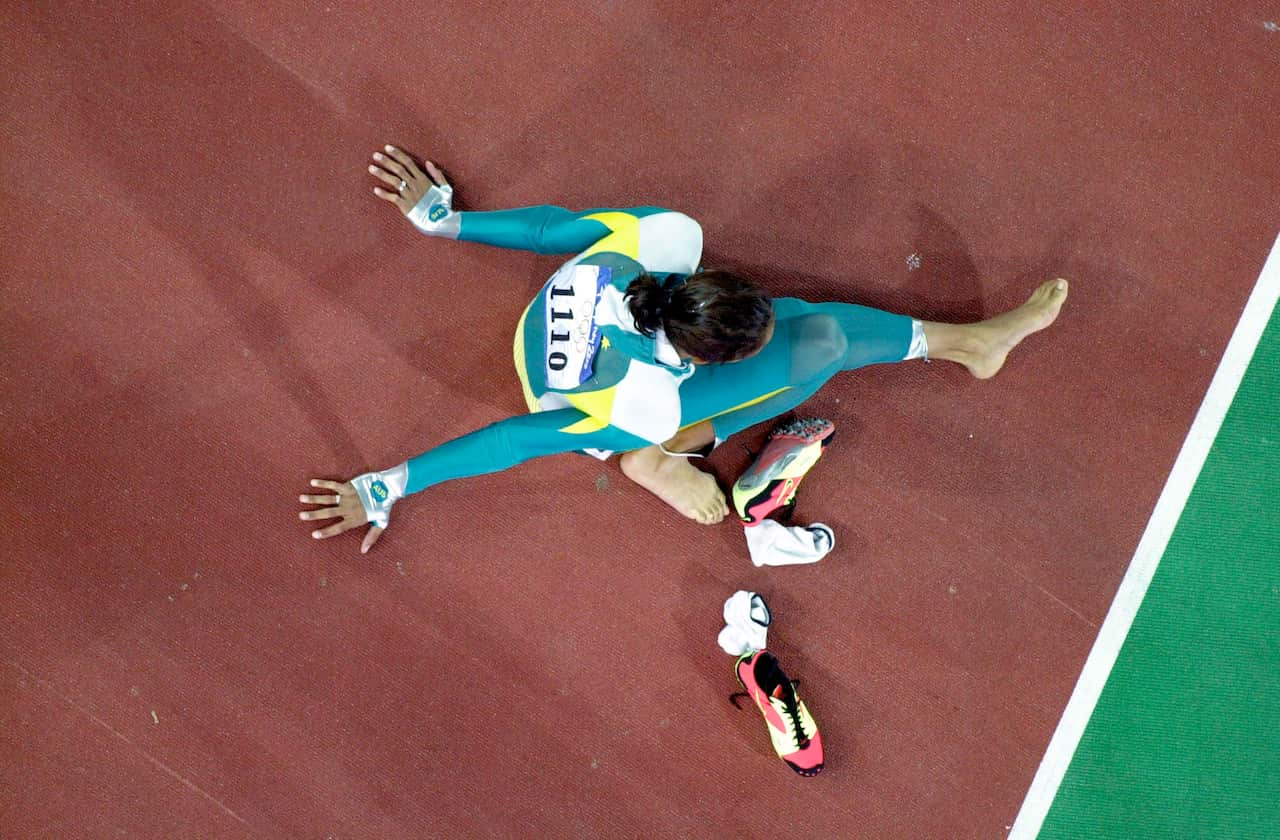49 seconds.
That’s all it took for Cathy Freeman to write her name into athletics folklore, and the heart of a nation.
Over the past 25 years, those 49 seconds have taken on a life of their own, becoming a symbol of Blak excellence, unity, and determination.
But, as the Kuku Yalanji athlete herself says, she was just being who she was raised to be.

Inner champion
From the moment Cathy Freeman lit the Olympic Cauldron, the pressure was on.
The 25th of September was pre-emptively dubbed ‘magic Monday’, in anticipation of Cathy’s 400m final.
But for the 27-year-old, that was all simply white noise.
“I knew the media was going to build it up … but I just wanted to do normal things and hang out with my teammates," she told NITV.
"But there was a time I had to send my family away … because they were so quiet and so nervous it was just ridiculous I just couldn’t handle it."

As the race grew nearer, Freeman never felt a moment of doubt, despite what felt like the entire world asking ‘could she really do it?’
As the noise of 112,000 people inside Olympic Stadium built before the 400m final, Freeman does admit there were moments of vulnerability, stating she felt like “a lamb to the slaughter".,
But once she was in her start position, her inner champion took over.
“[There was] that feeling of smallness and vulnerability and 'this it now', but … dare I say that’s where self-conviction came into it."
Freeman may have lit a cauldron in that very stadium 10 days prior, but as she crouched on her blocks, it was now a cauldron filled entirely with expectation on a young murri kid from Mackay.
It was now, or never.
And as the gun fired, a champion was born.
“See, running has always brought me a tremendous sense of serenity and peace from within. It’s almost meditative [because] I had trained for so many years”.
A gold to remember
Freeman can still recite her exact race plan for the night,as though Sydney 2000 was yesterday.
“Fly out of the blocks, leg spin in the third 100, attack in the third 100, go for it in the fourth 100.”
As she crossed the line, some 3 metres ahead of her nearest opponent, Australia erupted.
Australian and Aboriginal flags waved, and a sigh of joy and relief was felt across the nation.
But in that moment Freeman sat in silence on the track. No smile, no tears.
Transported internally back to all the years of toil, of hard work, and of a sign written when she was just a child ‘I am the world’s greatest athlete’.
“I crossed the line and the first thought was 'So this is what being a world champion feels like.'"

Many look to that moment and see an athlete overwhelmed with joy and relief, but for Freeman there is a touch of disappointment: ever the competitor, Freeman noticed her running time.
49.11 seconds. She hadn’t hit her personal best 48.68.
“The second thought was, 'dammit I didn’t get under 48 seconds.'"
It's another glimpse into the mindset that made Freeman the champion that she was.

A proud first nations champion
It’s then that Freeman became not only a symbol of sporting excellence, but also of reconciliation.
In an iconic moment, she carefully picked up both the Aboriginal and Australian flags as she undertook a memorable lap of honour.
She had always been a proud Kuku Yalanji woman.
In fact, in 1994 at the Commonwealth Games she had done the same.
But amid a discourse about an apology to the Stolen Generations and following the Opening Ceremony, which proudly celebrated Indigenous Australian culture, her decision felt more powerful than ever.
And while much has been made of the two flags flown together, she says it was the clearest way to celebrate exactly who she wants to be.
“[I wanted to] share my whole self with everybody. My childhood dream wasn’t just to win a gold medal, but to in the victory lap to wear both flags … I couldn’t separate the two”.

The backlash? The athlete says 'who cares?'
“I just didn’t connect with that activity," she said.
Instead, 25 years on Freeman spends her time focusing on the positive light she still shines for her community, and all Australians.
“You can’t be everything to everyone, but it is nice if you can make someone smile.
"I definitely feel with people that there is lovely sentiment that we share.”

